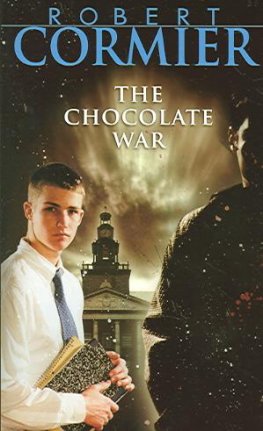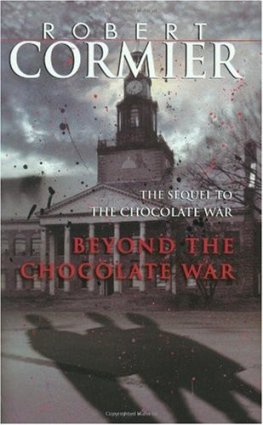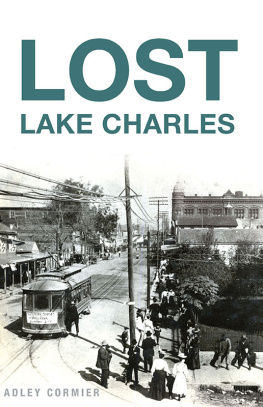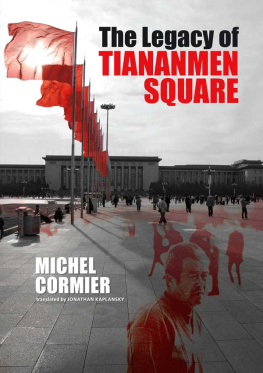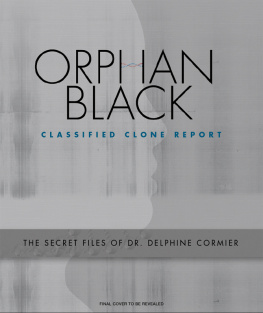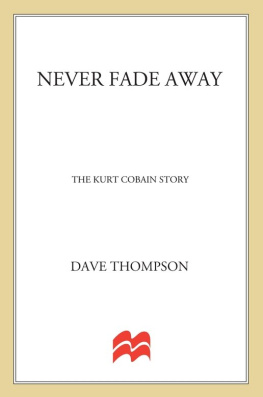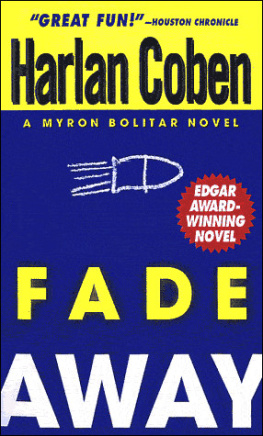Robert Cormier - Fade
Here you can read online Robert Cormier - Fade full text of the book (entire story) in english for free. Download pdf and epub, get meaning, cover and reviews about this ebook. genre: Art / Prose. Description of the work, (preface) as well as reviews are available. Best literature library LitArk.com created for fans of good reading and offers a wide selection of genres:
Romance novel
Science fiction
Adventure
Detective
Science
History
Home and family
Prose
Art
Politics
Computer
Non-fiction
Religion
Business
Children
Humor
Choose a favorite category and find really read worthwhile books. Enjoy immersion in the world of imagination, feel the emotions of the characters or learn something new for yourself, make an fascinating discovery.

- Book:Fade
- Author:
- Genre:
- Rating:3 / 5
- Favourites:Add to favourites
- Your mark:
- 60
- 1
- 2
- 3
- 4
- 5
Fade: summary, description and annotation
We offer to read an annotation, description, summary or preface (depends on what the author of the book "Fade" wrote himself). If you haven't found the necessary information about the book — write in the comments, we will try to find it.
Robert Cormier: author's other books
Who wrote Fade? Find out the surname, the name of the author of the book and a list of all author's works by series.
Fade — read online for free the complete book (whole text) full work
Below is the text of the book, divided by pages. System saving the place of the last page read, allows you to conveniently read the book "Fade" online for free, without having to search again every time where you left off. Put a bookmark, and you can go to the page where you finished reading at any time.
Font size:
Interval:
Bookmark:
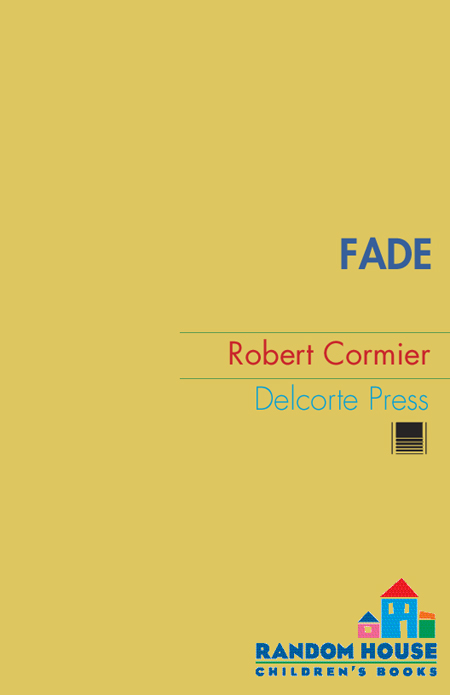
After the First Death
Beyond the Chocolate War
The Bumblebee Flies Anyway
The Chocolate War
8 Plus One
Frenchtown Summer
Heroes
I Am the Cheese
I Have Words to Spend
In the Middle of the Night
Other Bells for Us to Ring
The Rag and Bone Shop
Tenderness
Tunes for Bears to Dance To
We All Fall Down
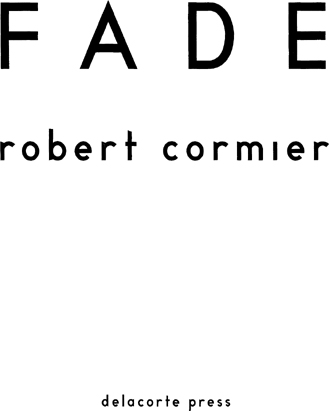
To my wife, Connie, with love

 t first glance, the picture looked like any other in a family album of that time, the sepia shade and tone, the formal poses, the men in solemn Sunday suits and the women, severely coiffed, in long skirts and billowing blouses. It was a portrait of my father's family taken before World War I on the front steps of the house in Quebec on the banks of the Richelieu River.
t first glance, the picture looked like any other in a family album of that time, the sepia shade and tone, the formal poses, the men in solemn Sunday suits and the women, severely coiffed, in long skirts and billowing blouses. It was a portrait of my father's family taken before World War I on the front steps of the house in Quebec on the banks of the Richelieu River.
The family moved to New England shortly after the picture was taken, my father along with my grandparents, my five uncles and four aunts, among them my aunt Rosanna, whom I would love all the days of my life.
I discovered the photograph when I was eight or nine years old and was told immediately of its mystery by my cousin Jules, who swore me to secrecy. I found out eventually that the mystery of the photograph was not really a secret, although it provoked various reactions among members of the family. Some dismissed the mystery not as a mystery at all, but as a failure of the camera's mechanism or the result of a childish prank. Others spoke of the mystery in hushed tones, with raised eyebrows, as if even the mere mention of the picture would bring terrible consequences. My grandfather refused to talk about the photograph altogether and acted as if it didn't exist, although it occupied a place in the big family album in the mahogany desk in the parlor at his house.
My father was amused by it all. Every family has its mysteries, he said. Some families have ghosts, we have a picture.
The mystery?
In the space that was supposed to have been occupied by my uncle Adelard, at the end of the top row, next to my father, there is simply a blank space. Nothing.
My uncle Adelard had disappeared at the moment the camera clicked and the shutter opened.
My uncle Adelard was always disappearing, going away and coming back again, a drifter whom I regarded as a glamorous figure, an adventurer, although he was thought of as a hobo and a tramp by some of the others in the family.
The family had settled down in Frenchtown on the east side of Monument in Massachusetts along with hundreds of other French Canadians, living in the three-decker tenements and two-story houses, working in the shops producing combs and shirts and buttons, sending their children to St. Jude's Parochial School, and attending mass at St. Jude's Church on Sundays. They shopped every day in the stores on Fourth Street, although they made regular excursions to Monument Center, the downtown shopping district.
I was puzzled by the way the people of Frenchtown accepted the daily grind of the factories, week after week, year after year. My father, for instance. A handsome man who was quick to laugh, he enjoyed a great reputation as a ballplayer in the Twilight Industrial League, swift and daring as a base runner and hitting dramatic home runs in the clutch. He danced the quadrilles at weddings with the same kind of quickness, whirling my mother around dizzyingly on the dance floor with whoops of delight while she hung on for dear life. The next morning he trudged his way back to the Monument Comb Shop, where he worked for forty-five years, enduring the layoffs, the lean years of the Depression, and the violence of the strikes.
My uncle Adelard escaped the shopsthe daily drudgery and the layoffs and the walkoutsjust as he had escaped the photographer's lens in Canada. That was why I felt a kinship with him. In that summer of 1938, I was thirteen years old, timid and shy and sometimes afraid of my own shadow. But in my heart I was brave and courageous like the cowboys in the Saturday afternoon serials at the Plymouth Theater. I felt that I, too, could become a hero if the opportunity presented itself or if I were tested. But there were no opportunities in Frenchtown. I longed to explore the outside world I saw in the movies or heard about on the radio or read about in books. Uncle Adelard was the only person outside my books and movies who had the dimensions of a hero, who dared to be different, who wandered the earth.
And that was why I hounded my father with questions whenever I got the chance. I waited while he listened to the radio and the news of Hitler gobbling up countries in Europe, felt guilty because the photograph was more important to me than the marching armies overseas. But this did not deter me from my purpose. I would gauge his disposition after he snapped off the radio, and if he seemed in a talkative mood, brought up the subject of the photograph.
Sipping the beer he brewed in the porcelain crocks in the cellar, smoking his Chesterfields, he often smiled in rsignation and said: Okay, what do you want to know? As if I had never asked these questions before.
Okay, it was a Sunday afternoon, right? And you were all on the front steps up in St. Jacques
That's right, my father said, lighting another Chesterfield with a kitchen match scratched on his pants. We were dressed in our Sunday best in shirts and ties and wool jackets. It was a hot summer afternoon so there was a lot of moving around, a lot of squirming.
And Uncle Adelard was standing right beside you
He sure was, he said. It was impossible not to notice him. He was restless, refused to stand still. Until your Ppre turned around and gave him a look. He could shrivel your bones with that look.
So at last Adelard became quiet, although he still managed to give me a pinch, daring me to flinch or jump.
And then what happened?
Well, nothing. The photographer, Mr. Archambault, snapped the picture when we were all settled down. Rosanna was a baby in your Mmre's arms and had been fussing a bit. But she fell asleep, dozing nice and quiet. And, bang, the picture was taken.
Now, tell me what happened when Mr. Archambault brought the picture to the house, I said.
The smell of celluloid clung to my father, a sweet acid smell that emanated not only from his clothes but from his skin as well, even when he emerged from a bath. It was the smell of the material from which combs and brushes were made at the shop. It was the smell of work, the smell of weariness, even the smell of danger because celluloid was highly flammable and sometimes spurted into flame without warning.
Sighing, he said:
Well, when we looked at the photograph, there was no Adelard. Instead of Adelard, there was a blank space. He had disappeared.
Did he really disappear? I asked, as if I hadn't asked the question a thousand times before.
Well, Adelard was a trickster, you know. I think he might have ducked out of sight at the last minute, just as the photographer took the picture.
Wouldn't you have seen him do that? I asked. He must have made some kind of movement.
Font size:
Interval:
Bookmark:
Similar books «Fade»
Look at similar books to Fade. We have selected literature similar in name and meaning in the hope of providing readers with more options to find new, interesting, not yet read works.
Discussion, reviews of the book Fade and just readers' own opinions. Leave your comments, write what you think about the work, its meaning or the main characters. Specify what exactly you liked and what you didn't like, and why you think so.

